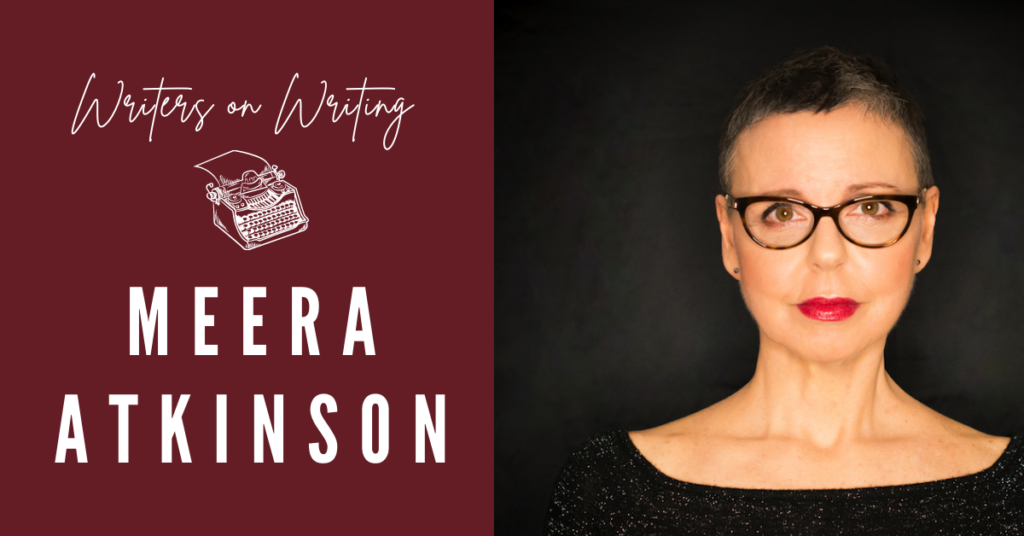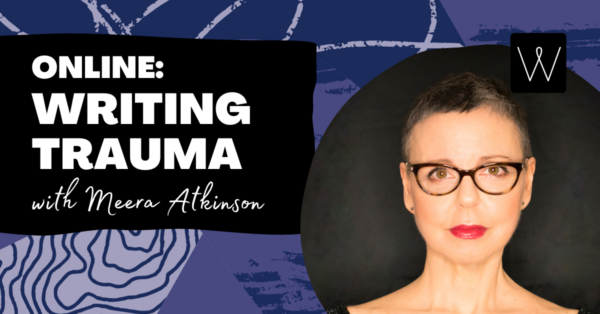
Writing about trauma is often framed as therapeutic. But what are the perils in uncovering and giving form to these memories, and how can writers care for themselves in the process?
This is an important question. There is a difference between journal writing undertaken for therapeutic benefits and writing trauma where therapeutic benefits aren’t the primary aim or necessarily the outcome, though in some cases, it can be part of the picture. Often, the former is undertaken in the context of professional or community support, so there’s a safety net there. There are certainly perils, especially if the traumatic experience is recent, and there hasn’t been time and support in place to begin to process. But writing can also be vital to reclaiming traumatic memory (even as that poses particular challenges to writing).
Having the right resources and the guidance of someone who both understands the process and craft of writing and the process of wrangling with trauma can support both the writing and the well-being of the writer. I’m thinking a lot about trauma-informed writing teaching and mentoring at the moment. It’s not much on the radar, and I think it needs to be.
Your memoir, Traumata, is an incredibly powerful testimony of a life marked by a percussive series of dislocations and devastations. It is also a work rich in research. What was behind this choice to combine the literary voice of memory with the academic voice of intellect?
That choice came quite naturally to me. I’ve had substantial experience over the years living through the inner-realms of reckoning with trauma. I’ve also worn a researcher hat, both as a literary writer and academic, for the past decade. There are limitations in both registers of what can be explored and said. In the case of Traumata, in which I ambitiously set out to situate my own traumatic history within the socially structured traumata of patriarchy, the combination of the two enabled me to layer and go deeper and with more nuance than either mode alone would have allowed.
How has your relationship with your personal history changed before and after writing the book?
After I published Traumata, I was often asked if writing it had been cathartic. I felt people were disappointed when I said no. I didn’t find it cathartic, because I had gone around the block with trauma for many years before writing the book, which is not to say there’s nothing new to discover or that I’m cured. Writing the book was still a very emotional and challenging process at times. Trauma weaves webs of shame. To the degree that writing the book has had any therapeutic value or changed my relationship with my personal history, it comes down to shame.
When you write a book like that you’re writing life experiences that most people go to great lengths to avoid and keep under wraps, and paradoxically, putting it out there is shame reducing. It forces you to move through a deeper stratum of shame, to look at shame squarely, and to put it in its place. In my case, that was about a new level of refusing to wear what wasn’t mine, refusing the individualised stigma of trauma, and calling patriarchy and its associated operations, e.g. late-stage capitalism and colonialism, out.
Does the writer of trauma testimonies bear any ethical obligations towards the reader?
Tough question. I think the answer is yes and no. On the no side: the reader always has the option of stopping reading, and when the work is published, there’s usually some framing around the writing that gives readers a heads up so they can make an informed decision whether they want to go there. On the yes side: if a writer wants a readership then yes, there is a responsibility to make the writing engaging and rewarding because let’s face it, life’s hard enough, and there’s enough bad news out there. Why should a reader read you if it isn’t going to give them more than it demands or costs? And yes, I think there are ethical obligations both toward readers and to those we share traumatic histories with in terms of how trauma is written, but it’s difficult to speak to in a soundbite.
Professor Anna Gibbs has written about the dangers of writing in terms of the way it involves a complex kind of interactivity, webs of ‘feedback loops’, and affective contagion that can put readers at risk. But there are positive and productive aspects of that, too, in that writing can be a potent way of witnessing; what Shoshana Felman calls literature as ‘an alignment between witnesses.’
Meera Atkinson is the author of Traumata and The Poetics of Transgenerational Trauma. Her work has appeared in many publications including Best Australian Poems 2010, Best Australian Stories 2007, Griffith Review and Southerly. Meera was the Varuna Dr Dark Flagship Fellowship recipient for 2017 and was awarded a 2019 Griffith Review Contributors’ Circle Varuna residency. She is a lecturer in English literature at New York University Sydney and also teaches postgraduate creative writing at the University of Notre Dame.
Join Meera for her online writing course Writing Trauma, Monday 25 March to Friday 12 April 2024.
If you want to be the first to read great advice, prompts and inspiration from our incredible tutors, subscribe to our weekly e-newsletter Newsbite.
More from Writing NSW
Check out our full range of writing courses in Sydney, our online writing courses and our feedback programs to see how we can help you on your creative writing journey. Find out about our grants and prizes, as well as writing groups across NSW, and sign up to our weekly newsletter for writing events, opportunities and giveaways.

